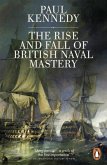This book offers a new edition of Henry Maydman's work Naval Speculations with a detailed commentary by two leading experts on its importance to the naval issues of the 21st century.
Written at a revolutionary and troubling time, Maydman's 1691 book offers an analysis of the state of the Royal Navy at the time, together with a set of recommendations for its improvement. It not only tells us a good deal about the Royal Navy of the time but also provides a general theory of why navies decline and what can be done to rejuvenate them. Recovering Naval Power shows that the issues he identifies have applied to every navy in every period. We are now seeing the dramatic rejuvenation of the Chinese Navy and the reactions to it of the US and other navies, together with a new rise in naval tensions in the Euro-Atlantic. Despite the obvious political, economic and technological differences between Maydman's day and ours, this work shows that his recommendations could hardly be more relevant in today's circumstances. Alongside the modified text of Naval Speculations, this book includes a preface and two chapters addressing, first, the Royal Navy of Maydman's time and his role in it and, second, the relevance of what Maydman said for the navies of the 21st century. The book concludes with some overall comments about Maydman and the recovery of naval power and recommendations for further reading.
This book will be of much interest to students of naval history, maritime power, strategic studies, and International Relations in general.
Written at a revolutionary and troubling time, Maydman's 1691 book offers an analysis of the state of the Royal Navy at the time, together with a set of recommendations for its improvement. It not only tells us a good deal about the Royal Navy of the time but also provides a general theory of why navies decline and what can be done to rejuvenate them. Recovering Naval Power shows that the issues he identifies have applied to every navy in every period. We are now seeing the dramatic rejuvenation of the Chinese Navy and the reactions to it of the US and other navies, together with a new rise in naval tensions in the Euro-Atlantic. Despite the obvious political, economic and technological differences between Maydman's day and ours, this work shows that his recommendations could hardly be more relevant in today's circumstances. Alongside the modified text of Naval Speculations, this book includes a preface and two chapters addressing, first, the Royal Navy of Maydman's time and his role in it and, second, the relevance of what Maydman said for the navies of the 21st century. The book concludes with some overall comments about Maydman and the recovery of naval power and recommendations for further reading.
This book will be of much interest to students of naval history, maritime power, strategic studies, and International Relations in general.
'The current revival of the Royal Navy gives a special interest to this fascinating account of a similar revival three hundred years ago. The relevance of Maydman's suggestions to today's circumstances shows that in this turbulent world many of the principles to building and organising an effective maritime fighting force do not change.'
Admiral Sir Ben Key KCB CBE ADC, First Sea Lord and Chief of Naval Staff, Royal Navy
'Building, then keeping, an effective fleet at sea is a perennial, long-term problem for a maritime nation. The cost and complexity of the operation allows every opportunity to short-change government as well as the seamen afloat, unless it is vigorously controlled. In 1691 Henry Maydman looked at all sides of the British problem, at a time when the naval war was not going well. He used a lifetime's experience as a supply officer to produce an unusually shrewd analysis, of particular interest since he wrote this just before the British navy's success slowly developed towards eventual dominance. This book shows that what Maydman had to say over three hundred years ago still has considerable relevance today.'
Roger Knight, University of Greenwich, UK, author of Britain Against Napoleon: The Organisation of Victory, 1793-1815, The Pursuit of Victory: Horatio Nelson
'In the late 17th century, Henry Maydman, a particularly keen observer, offered a critical analysis and a blueprint for improvement of what he saw as serious problems in the Royal Navy. Students of the Navy, or of the 17th century, will find here a gold mine of both information and insight. In addition, however, the context offered by the modern editors of this new edition shows how timely many of Maydman's observations are for navies and cultures of the 21st century.'
Craig L. Symonds, author of Nimitz at War
Admiral Sir Ben Key KCB CBE ADC, First Sea Lord and Chief of Naval Staff, Royal Navy
'Building, then keeping, an effective fleet at sea is a perennial, long-term problem for a maritime nation. The cost and complexity of the operation allows every opportunity to short-change government as well as the seamen afloat, unless it is vigorously controlled. In 1691 Henry Maydman looked at all sides of the British problem, at a time when the naval war was not going well. He used a lifetime's experience as a supply officer to produce an unusually shrewd analysis, of particular interest since he wrote this just before the British navy's success slowly developed towards eventual dominance. This book shows that what Maydman had to say over three hundred years ago still has considerable relevance today.'
Roger Knight, University of Greenwich, UK, author of Britain Against Napoleon: The Organisation of Victory, 1793-1815, The Pursuit of Victory: Horatio Nelson
'In the late 17th century, Henry Maydman, a particularly keen observer, offered a critical analysis and a blueprint for improvement of what he saw as serious problems in the Royal Navy. Students of the Navy, or of the 17th century, will find here a gold mine of both information and insight. In addition, however, the context offered by the modern editors of this new edition shows how timely many of Maydman's observations are for navies and cultures of the 21st century.'
Craig L. Symonds, author of Nimitz at War








